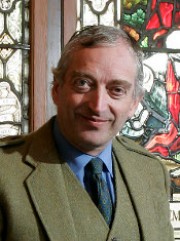Canadian mayor calls Gore ‘junk scientist’ who ‘trades on fear’ . “I think there’s a lot of junk science out there that’s masquerading as true science,’’ the Mayor (Andy Wells, St. John’s) told CanWest News Service yesterday, “and I think as a consequence public agencies and organizations such as municipal councils are making stupid decisions.” During a council debate on the subject in St. John’s Monday night, the feisty mayor tore into another councillor, calling him a junk scientist like “Al Gore and David Suzuki.”
Mr. Wells repeated the assertion Tuesday. “I always thought David Suzuki was a charlatan,’’ he said. Mr. Wells added: “I think this Al Gore’s Inconvenient Truth, from what I’ve read, contains a lot of very poor science. “I’m not an expert, far from it, but I know how to read.” Mr. Wells said Mr. Gore, Mr. Suzuki and the Sierra Club of Canada trade on fear to scare Canadians into giving them money to fund their activities.
See full story here.
By Viscount Monckton of Brenchley for the Science and Public Policy Institute
Note: A new website has been launched: The Science and Public Policy Institute (SPPI) is a nonprofit institute of research and education dedicated to sound public policy based on sound science. Among the premier stories is this one by Lord Monckton of Benchley.

It is often said that there is a scientific “consensus” to the effect that climate change will be “catastrophic” and that, on this question, “the debate is over”. The present paper will demonstrate that the claim of unanimous scientific “consensus” was false, and known to be false, when it was first made; that the trend of opinion in the peer-reviewed journals and even in the UN’s reports on climate is moving rapidly away from alarmism; that, among climate scientists, the debate on the causes and extent of climate change is by no means over; and that the evidence in the peer-reviewed literature conclusively demonstrates that, to the extent that there is a “consensus”, that “consensus” does not endorse the notion of “catastrophic” climate change.
A growing number of scientists who had previously subscribed to the alarmist presentation of the “consensus” are no longer sure. They are joining the numerous climatologists – many of them with outstanding credentials – who have never believed in the more extreme versions of the alarmist case. Indeed, many scientists now say that there has been no discernible human effect on temperature at all. For instance, Buentgen et al. (2006) say: “The 20th-century contribution of anthropogenic greenhouse gases and aerosol remains insecure.”Let the last word go to Mike Hulme, Director of the Tyndall Centre for Climate Change Research in the UK, who has himself undergone something of a conversio morum on climate change, and has written: “The IPCC is not going to talk about tipping points; it’s not going to talk about five-meter rises in sea level; it’s not going to talk about the next ice age because the Gulf Stream collapses; and it’s going to have none of the economics of the Stern Review. It’s almost as if a credibility gap has emerged between what the British public thinks and what the international science community think.
See full story here and see the new web site here.
Dr. Tim Ball and Tom Harris, NSRP in the Canada Free Press
There is nothing particularly unusual about current weather and climate change – it is generally well within long-term normal patterns. However, the public believes otherwise due to a combination of the way in which people have been taught to view nature, political exploitation of science and the hidden motives of environmental extremists. How did this happen and where are we headed if climate change hysteria continues unchecked?
Western education automatically assumes a ‘uniformitarian’ view of the World, a concept that change is gradual over long periods of time. As a consequence, sudden or extreme changes are considered abnormal by most of society. Yet even a cursory examination of climate records reveals variations in centuries past that are far faster and more severe than anything we are experiencing today.
Humans are naturally selective in what we notice. For instance, selectivity occurs when, after being introduced to someone, you seem to meet them frequently. They were always there, but just not part of your “noticing.” Similarly, the media and the public have started to “notice” extreme weather, glacier melting, sea level rise, etc. more because alarmists tell us that an increase in such events is a precursor to the coming ‘climate crisis’. Since people are on the lookout for such trends they seem to be accelerating even though recent quantitative studies demonstrate they are not (NRSP ‘allied scientist’ Dr. Madhav Khandekar has shown this clearly in his studies for the Alberta government, for example).
The exploitation of climate science for purely political goals is occurring throughout the developed world. For example, politicians inCanada have started to ban inexpensive and convenient technologies such as light bulbs, coal fired electricity generation and used oil heating to “stop climate change.” They can’t show how the alternatives being promoted will actually help the environment – we are expected to simply believe that such sacrifices for the climate will benefit us all, even if real pollution levels rise, food prices increase as agricultural land is converted to biofuels production and millions of birds are cut to pieces by wind turbines. ‘Believe’ is the key word here, not ‘think’. Even the United States, previously one of the last bastions of common sense in climate wars, is being swept up in this dangerous movement.
Read the full story here.


